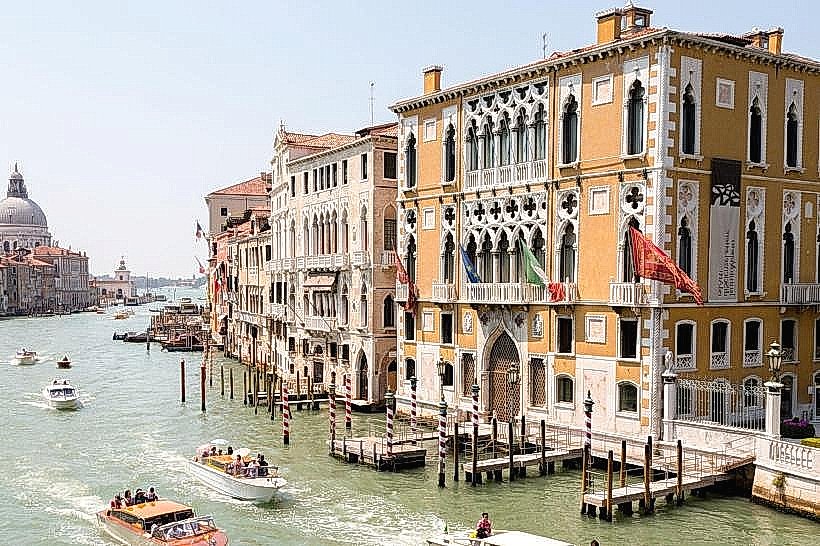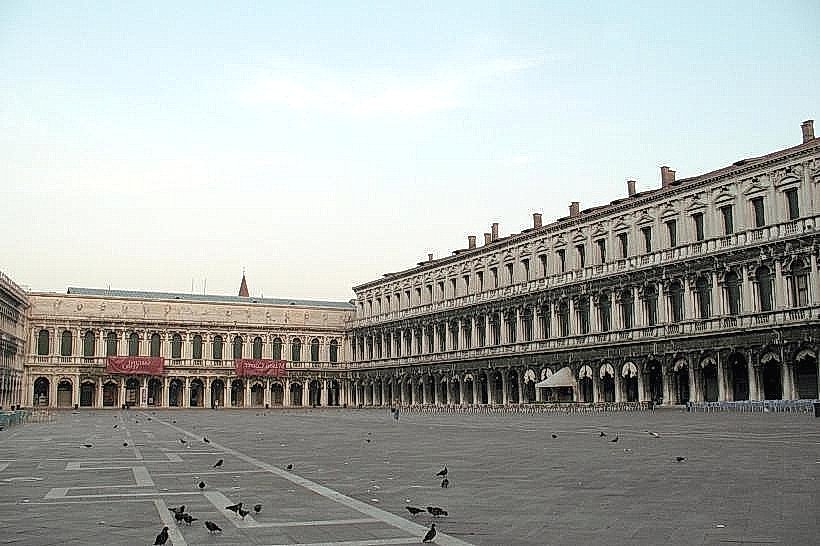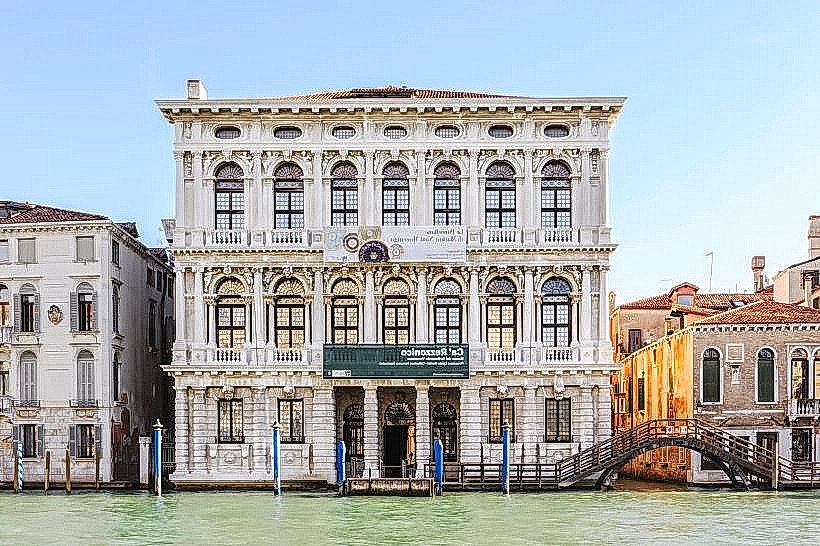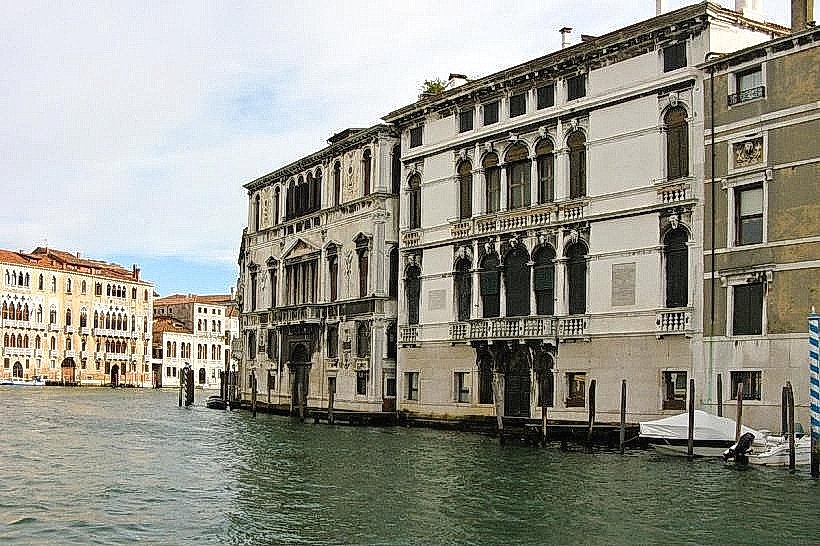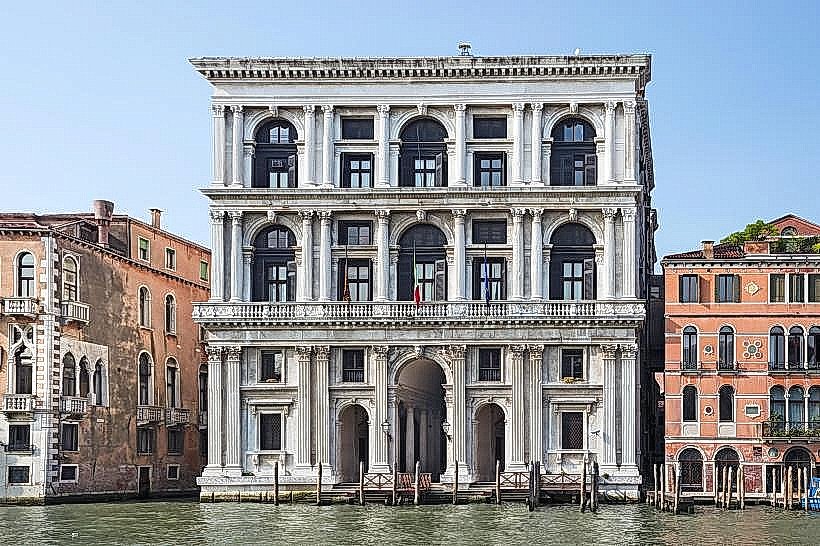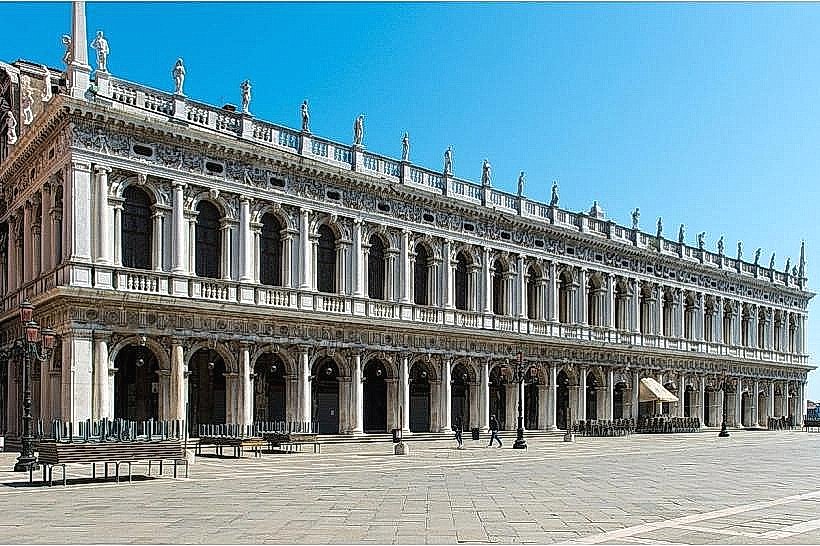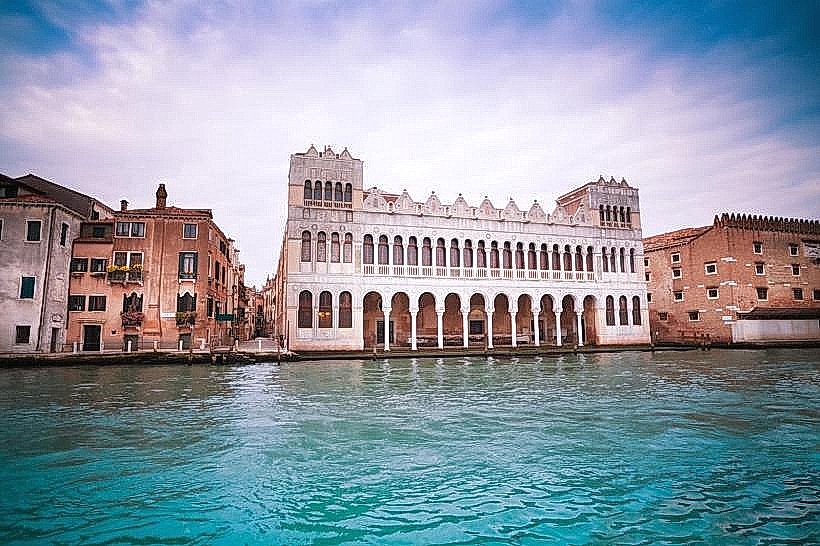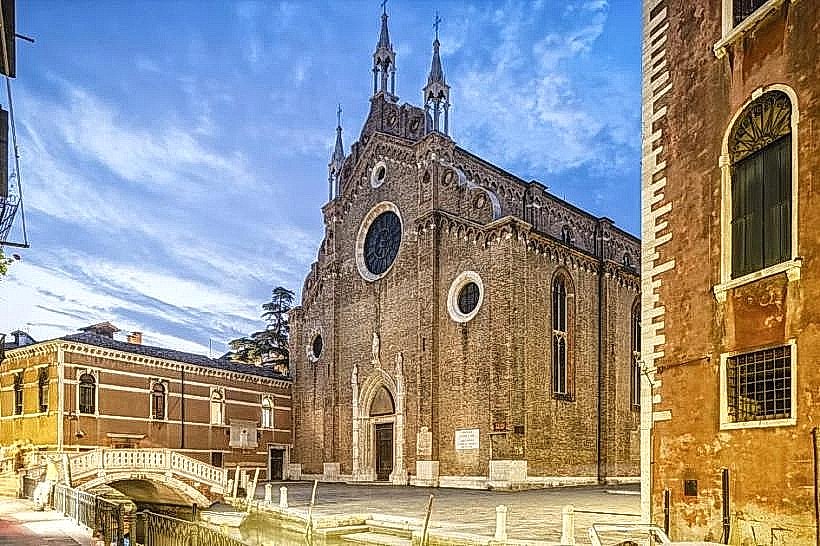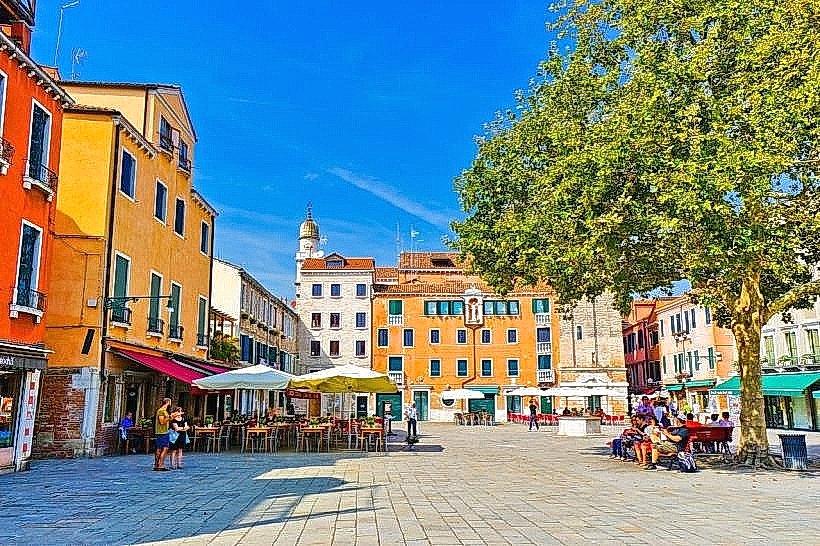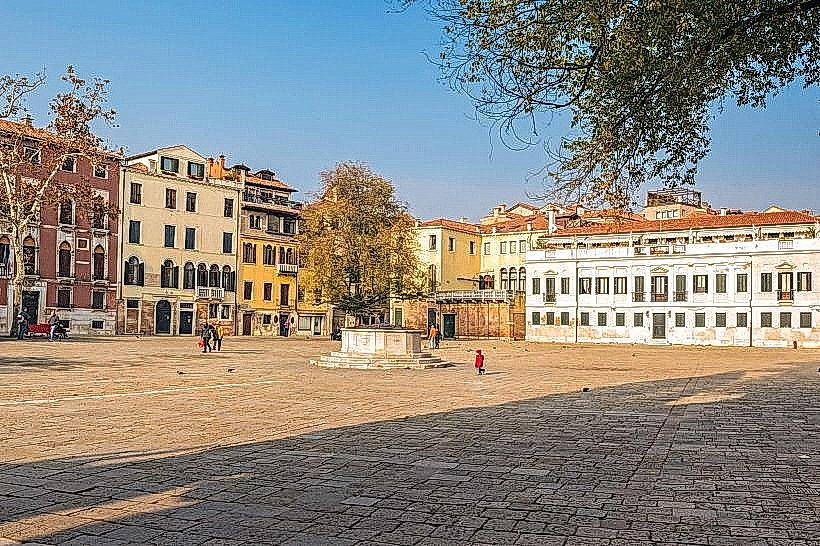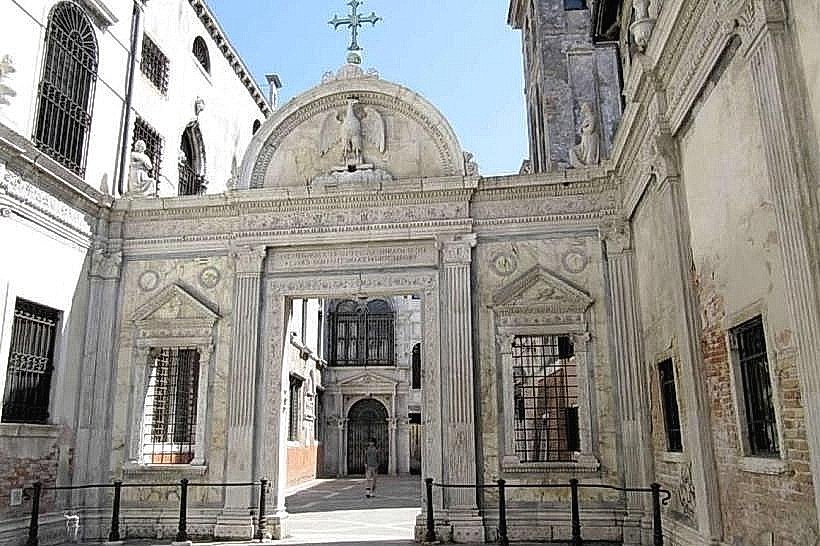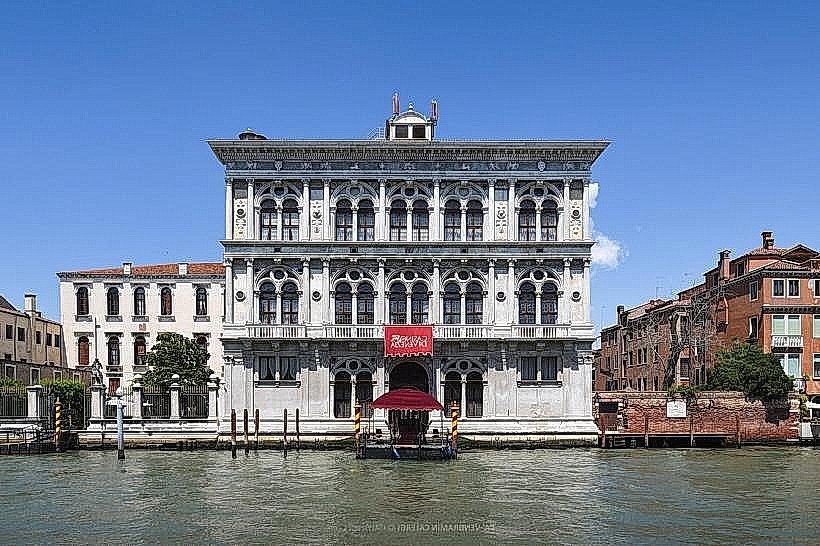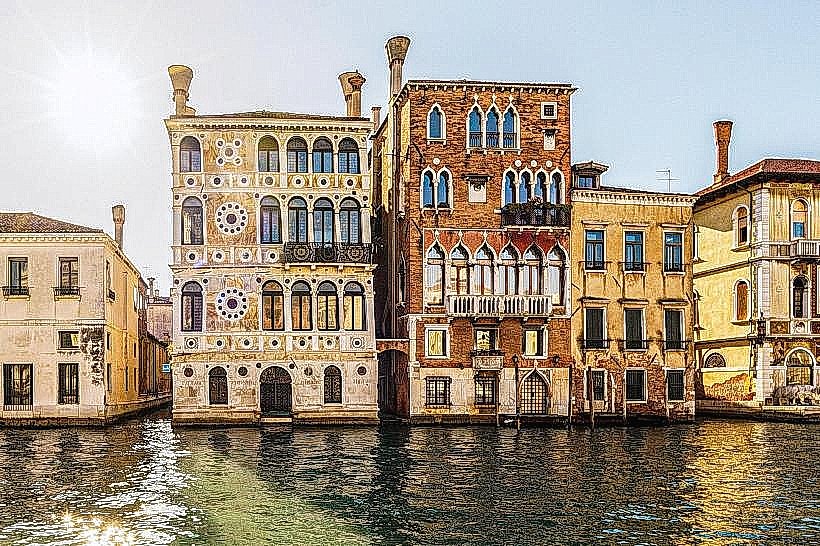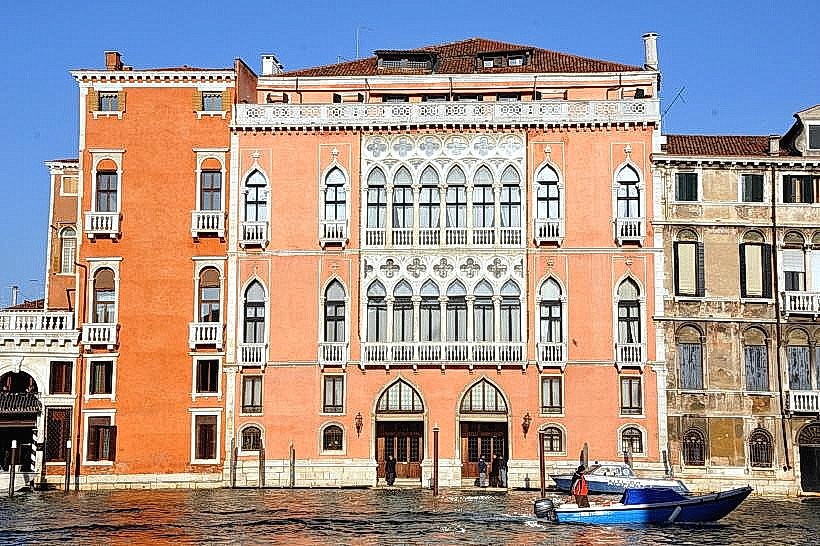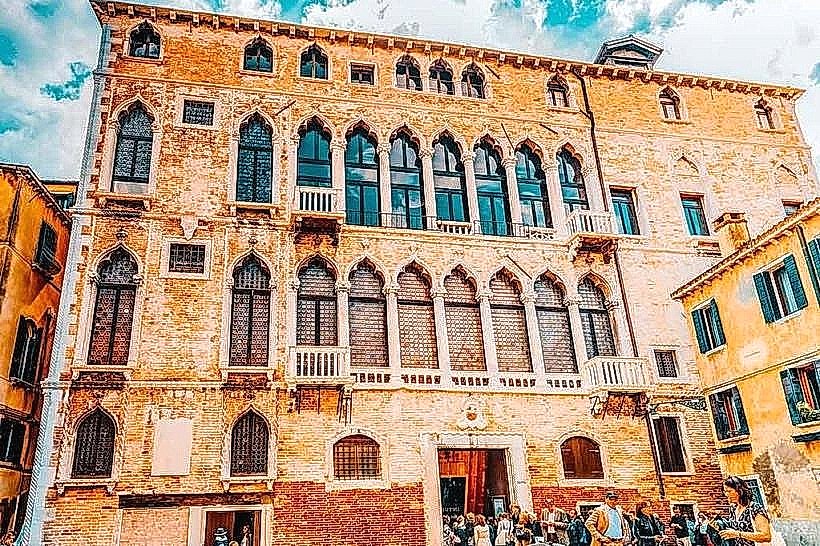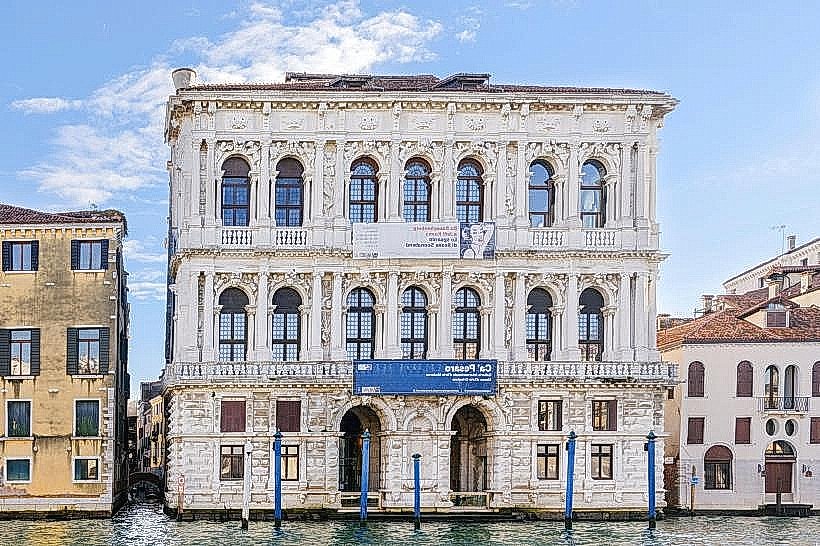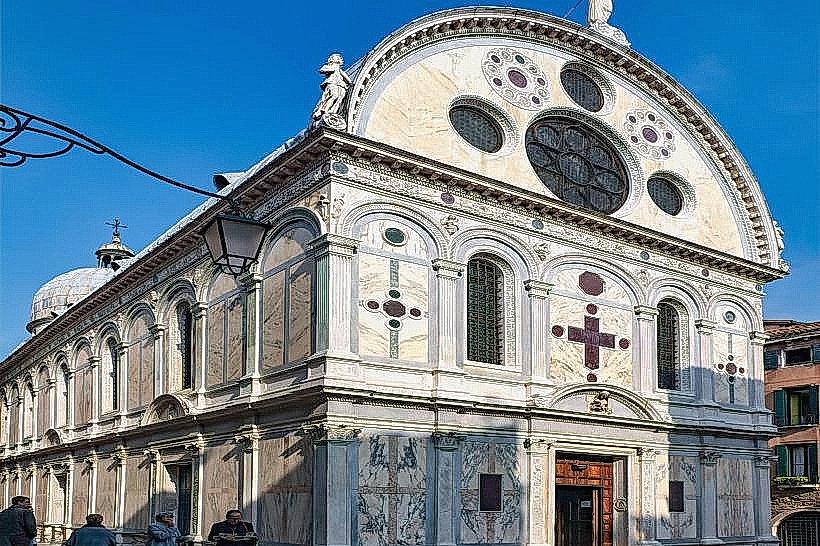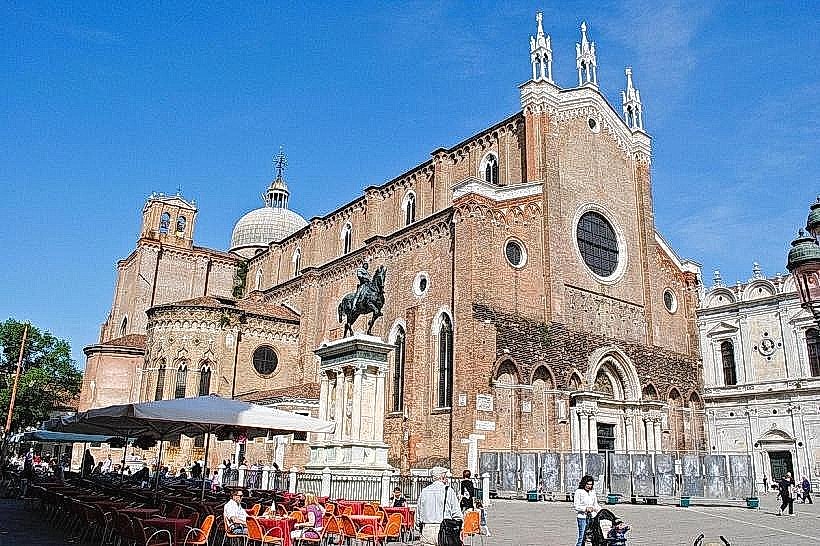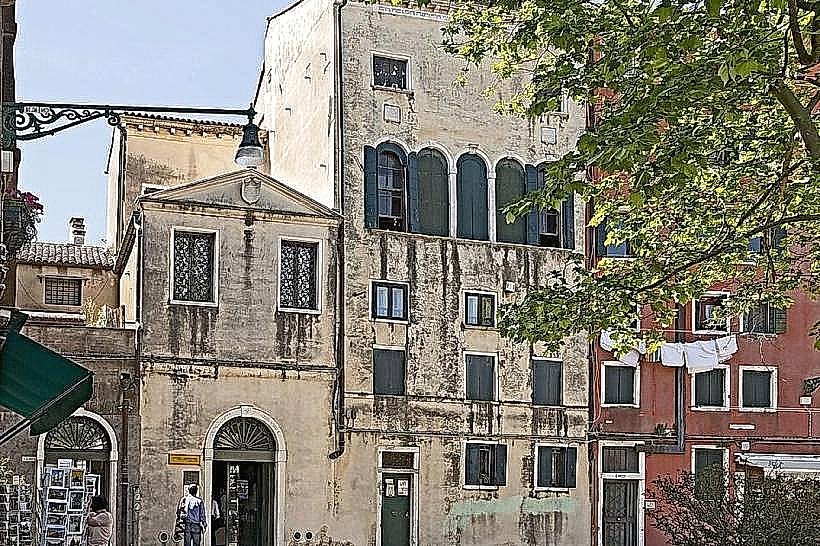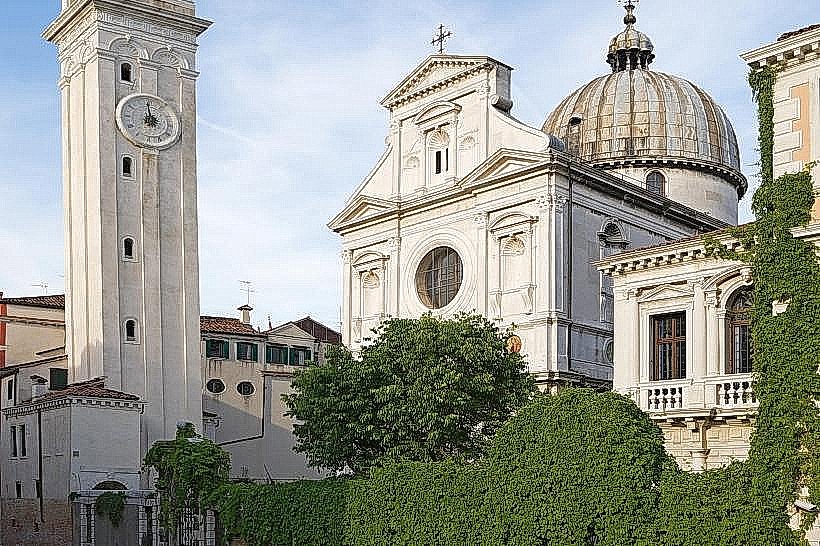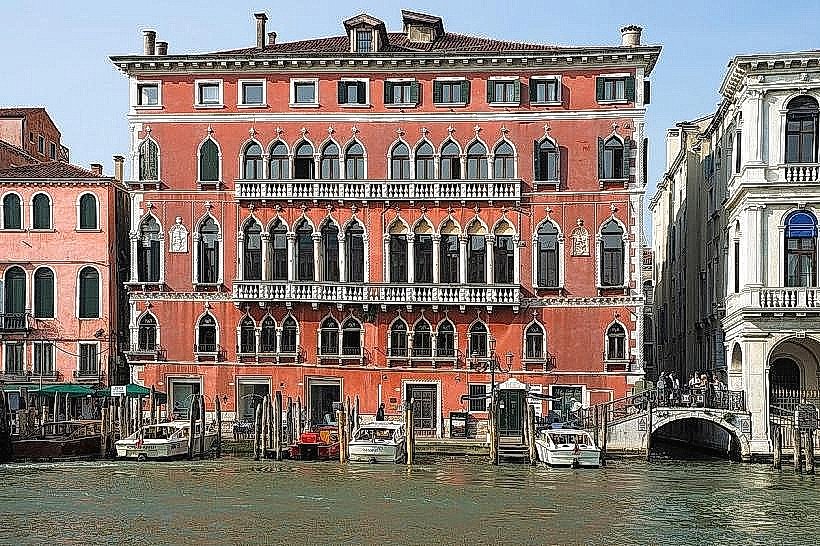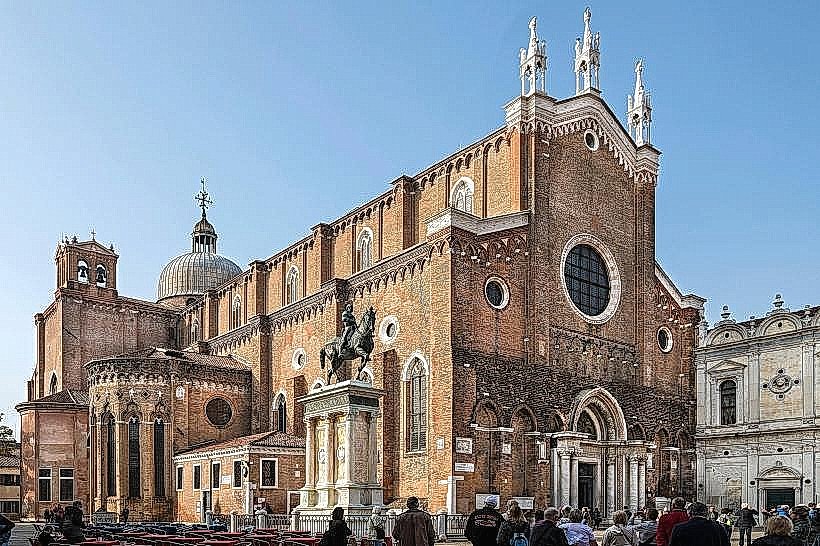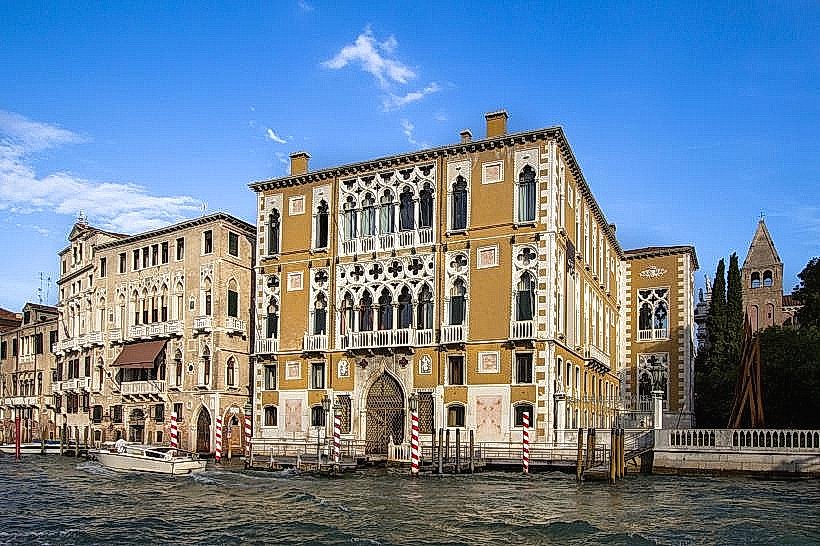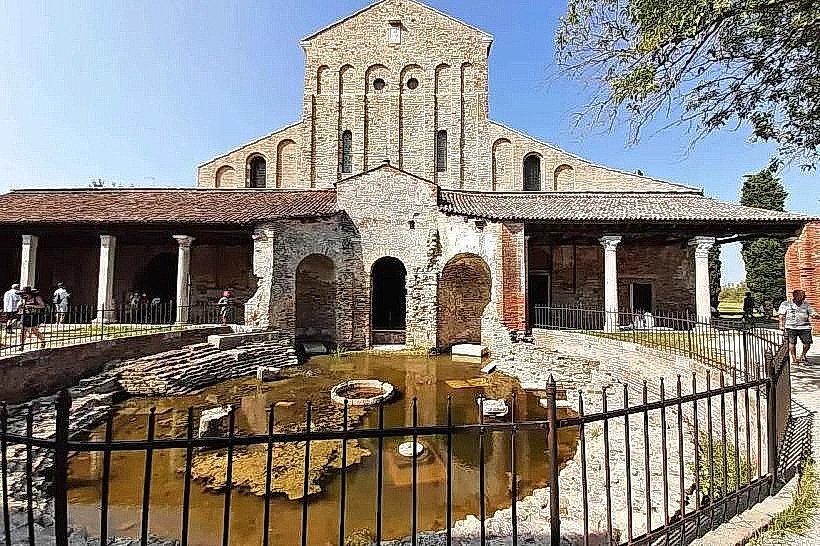Information
Landmark: Basilica di San MarcoCity: Venice
Country: Italy
Continent: Europe
Basilica di San Marco, Venice, Italy, Europe
St. Mark’s Basilica (Basilica di San Marco) is one of Venice’s most iconic and important landmarks. Located in Piazza San Marco (St. Mark's Square), it is renowned for its Byzantine architecture, golden mosaics, and historical significance. It has been a symbol of Venice’s power, wealth, and religious importance for centuries. Here’s a detailed look at this magnificent church:
1. History and Significance
- Construction: The original church was built in 828 to house the relics of St. Mark the Evangelist, which were smuggled into Venice from Alexandria, Egypt. The basilica that stands today was constructed between 1063 and 1094, during the Byzantine and Romanesque periods, and later expanded in the 13th century.
- Role: St. Mark’s Basilica served as the patriarchal cathedral of Venice and the official church of the Venetian Republic. The church also functioned as the symbolic seat of Venetian power, showcasing the Republic’s connection to both the Byzantine Empire and Roman Catholicism.
- Symbolism: St. Mark’s Basilica was designed to reflect Venice’s wealth, prestige, and its commercial power across the Mediterranean. Its design and decoration embody the city’s significant role in trade, culture, and religion during the Middle Ages and Renaissance.
2. Architectural Features
- Byzantine Influence: The basilica is a masterpiece of Byzantine architecture, characterized by its domed structure, ornate decorations, and eastern influence. The layout follows the traditional Greek cross design, with a central nave and four arms extending outward.
- Exterior Facade: The exterior is richly decorated with marble cladding and a combination of architectural styles, including Byzantine, Romanesque, and Gothic influences. The façade is adorned with sculptures, reliefs, and mosaics that illustrate biblical scenes.
- The Five Domes: The church’s most striking feature is its five domes, each covered with golden mosaics depicting scenes from the New Testament. These domes are inspired by Byzantine churches in Constantinople (modern-day Istanbul) and are one of the key elements that define the basilica's architecture.
- Pala d'Oro (Golden Altarpiece): This masterpiece, located behind the altar, is an intricate golden altarpiece that includes 1,900 gemstones and lots of enamelwork, showcasing stories of Christ’s life and scenes from the Gospel. It was crafted in the 12th century and is considered one of the most important works of Byzantine art in the world.
3. Interior Design and Decorations
- Mosaics: The interior is covered with over 8,000 square meters of mosaics, predominantly using gold leaf. The mosaics are iconic for their vivid colors and intricate detail, depicting religious figures, angels, saints, and scenes from the Bible. The mosaics were created over centuries, with the most famous ones dating from the 12th to 13th centuries.
- Notable mosaics include Christ Pantocrator in the central dome, The Last Judgment in the apse, and scenes from the life of St. Mark.
- Marble Flooring: The basilica’s floors are made of stunning polished marble tiles, with intricate geometric patterns. Many of these tiles were brought from the Eastern Mediterranean.
- Bells and the Pala d’Oro: The Pala d'Oro (Golden Altar) is one of the most impressive elements of the interior. It is a large gilded altarpiece adorned with gemstones, enamel, and precious metals. It houses relics of Saint Mark and is used in liturgical services.
- St. Mark's Relics: The basilica is dedicated to St. Mark, and his relics were believed to have been smuggled into Venice from Alexandria, Egypt in the 9th century. These relics were hidden in the church's crypt and are a significant draw for pilgrims.
4. Piazza San Marco (St. Mark's Square) and Its Connection
- Piazza San Marco is the main square in Venice, located directly in front of the basilica. The square, often called the drawing room of Europe, is an important hub for both locals and tourists. It is the site of many events and celebrations.
- The basilica faces the square with its ornate entrance, which is divided into three main doorways that lead inside. These entrances are decorated with sculptures of biblical figures and scenes from the life of Christ.
- The Campanile di San Marco (St. Mark's Bell Tower) stands next to the basilica, offering a panoramic view of Venice and its canals. It is a defining feature of the city skyline.
5. The Four Horses of St. Mark
- One of the most famous symbols of St. Mark’s Basilica is the Four Horses of St. Mark. These bronze statues are believed to be ancient Roman works, and they once adorned the entrance to the basilica. They were originally looted from Constantinople during the Fourth Crusade in the 13th century.
- The original horses are now housed inside the basilica to protect them, with replicas displayed on the façade.
6. Museum and Treasury
- St. Mark's Museum: The museum is located on the upper floor of the basilica and offers visitors a chance to view historical artifacts, mosaics, and antique liturgical items. The museum also has some early Christian relics and works of art.
- Treasury of St. Mark's Basilica: The treasury is a collection of priceless religious artifacts, including golden chalices, relics, and liturgical items used in church services. It is a reflection of the wealth that the church accumulated over the centuries.
7. Visiting St. Mark’s Basilica
- Opening Hours: The basilica is open to the public every day, with visiting hours generally from 9:45 AM to 5:00 PM. The basilica can get very crowded, especially during peak tourist season, so it's advisable to visit early in the morning or later in the evening.
- Entrance Fees: Entrance to the basilica is generally free, but there are charges for certain parts, like the Museum, Pala d’Oro, and the Treasury.
- Dress Code: As a functioning religious site, visitors are expected to dress modestly when entering the basilica, with shoulders and knees covered.
8. Conclusion
St. Mark’s Basilica is not only a religious site but also a testament to the splendor and rich history of Venice. Its Byzantine mosaics, impressive architecture, and cultural significance make it one of the most visited and revered landmarks in Italy and Europe. The basilica’s combination of art, architecture, and history makes it a must-see for anyone visiting Venice.

